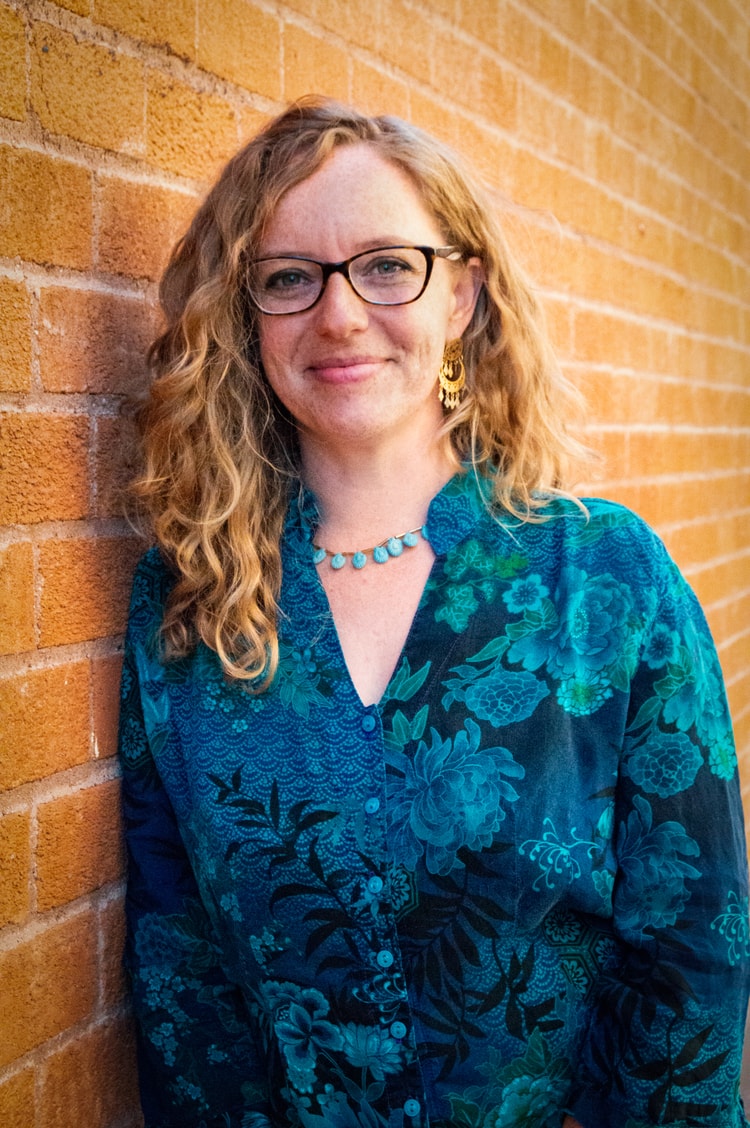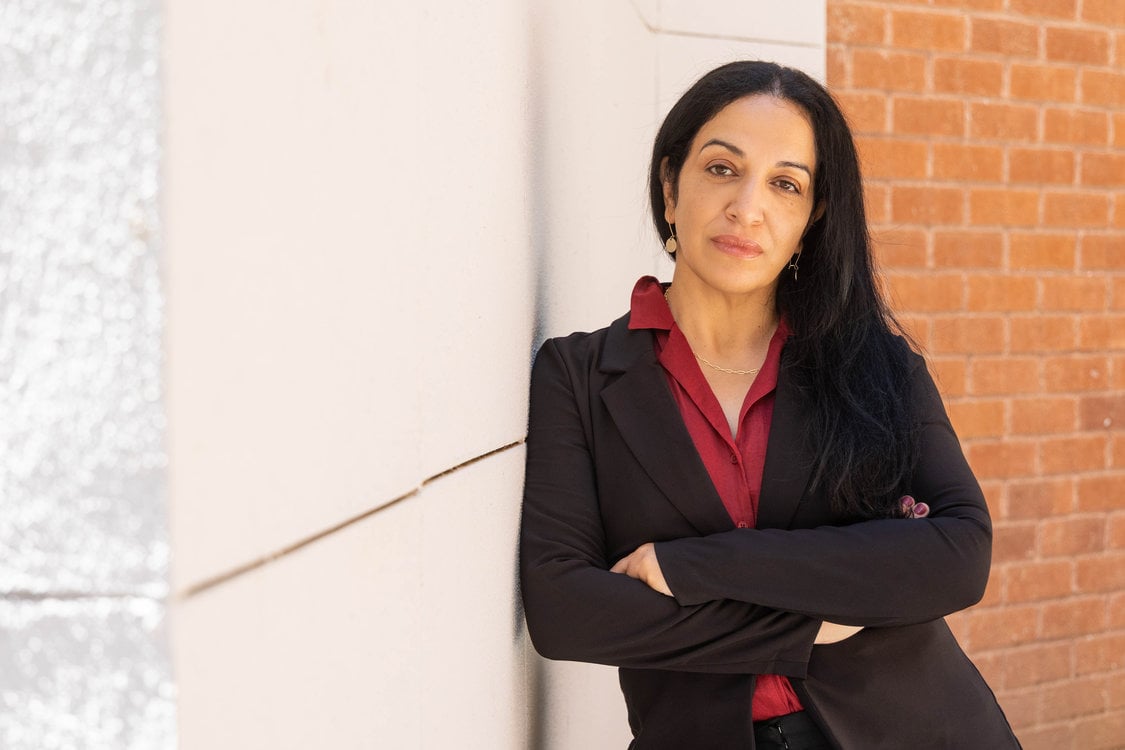Moderated by: Amy Kraehe
In the first Research Conversation Sama Alshaibi and Dr. Jennie Gubner came together to talk informally about what it means for them to do research in/through the arts and about some of their respective research projects, past and emergent.
One of the themes of their conversation was how to use different ethnographic and arts-based research methods to gather, craft and disseminate stories of individuals and communities that contest and distrust problematic mainstream media narratives and stigma. Another theme was the idea that one of the necessary qualities of emergent creative research in the arts is an element of excitement mixed with fear of the unknown and the importance of embodying that space and trusting the process of allowing new ideas to develop in non-linear ways through everyday and formal research experiences.
One of the themes in Dr. Gubner’s talk was the importance of finding ways to do translational research, in the sense of creating arts-based projects and arts-based research that doesn’t just stay within arts communities but that instead is capable of engaging and communicating research findings to diverse disciplinary and public audiences in accessible ways. She also spoke about her emergent research in Tucson and the slow and complex project of building relationships with community partners, both institutional partners from the health sciences and partners with neighborhood and cultural organizations connected to Latinx communities. This process involves informal and formal dialogues with many different community stakeholders in order to develop a project that can address issues of music and creative aging collaboratively and taking into consideration many local voices and perspectives. She explained that oftentimes beyond just conversations, engaging with the community through music making can be a very effective way to develop these relationships of trust necessary to build successful collaborations. She also spoke about how her work is rooted deeply in curricular development at the university, thinking about how she can design courses that are meaningful for students from across campus and effective in teaching about aging from the perspective of the arts and interculturality.
Alshaibi talked about how she does arts research primarily as an image maker who explores themes revolving around women’s experiences in the aftermath of war in Iraq. She spoke about how her research questions usually emerge from lingering questions from previous research projects, and how her recently won Guggenheim Fellowship explores centralized political violence towards women in Iraq and how that violence has impacted their social and physical beings, including explorations of how women occupy or disappear from public space and public life. She discussed the complexities of carrying out research in war-torn regions and the need to constantly pivot and adjust depending on the conditions she encounters in the field, and how these end up informing her studio practice. She reflected on how through her practice she works to bring more meaning and intentionality to the production of images and narratives of individuals related to her home country of Iraq to contest the way that zones of conflict end up being over-documented to the point where images and narratives from those regions mean very little to viewers. (Summary: Dr. Gubner)
People in the room for the conversation were each given a 3X5 card and asked: What is one thing you will take way from this conversation?
Here are some sample responses:
- Images betray their subjects but, we can ask how we might make images “mean more.”
- Great questions offered by each speaker have inspired me to re-think my own practice as a researcher/artist/educator.
- Thinking about what it means to know something physically, as maker and facilitator of a project.
- Focus on the impact. Think about the value I can bring to people. Would like a mentor to help ignite my journey and articulate my thoughts into something solid.
- What happens to subjectivity if it becomes a method? And what would any science be without it?
- Allowing for ‘un-knowns’ indeterminate, free-will investigations to formulate a project, questioning.
- How can the university continue to support research in the arts for the creative work that exists beyond the CFA? (or how can those for us beyond the CFA work with you?)

Jennie M Gubner
School of Music
Assistant Professor, Music
Chair, Applied Intercultural Arts Research - GIDP

Sama Raena Alshaibi
School of Art
Professor, Art
Co-Director, Racial Justice Studio
Regents Professor